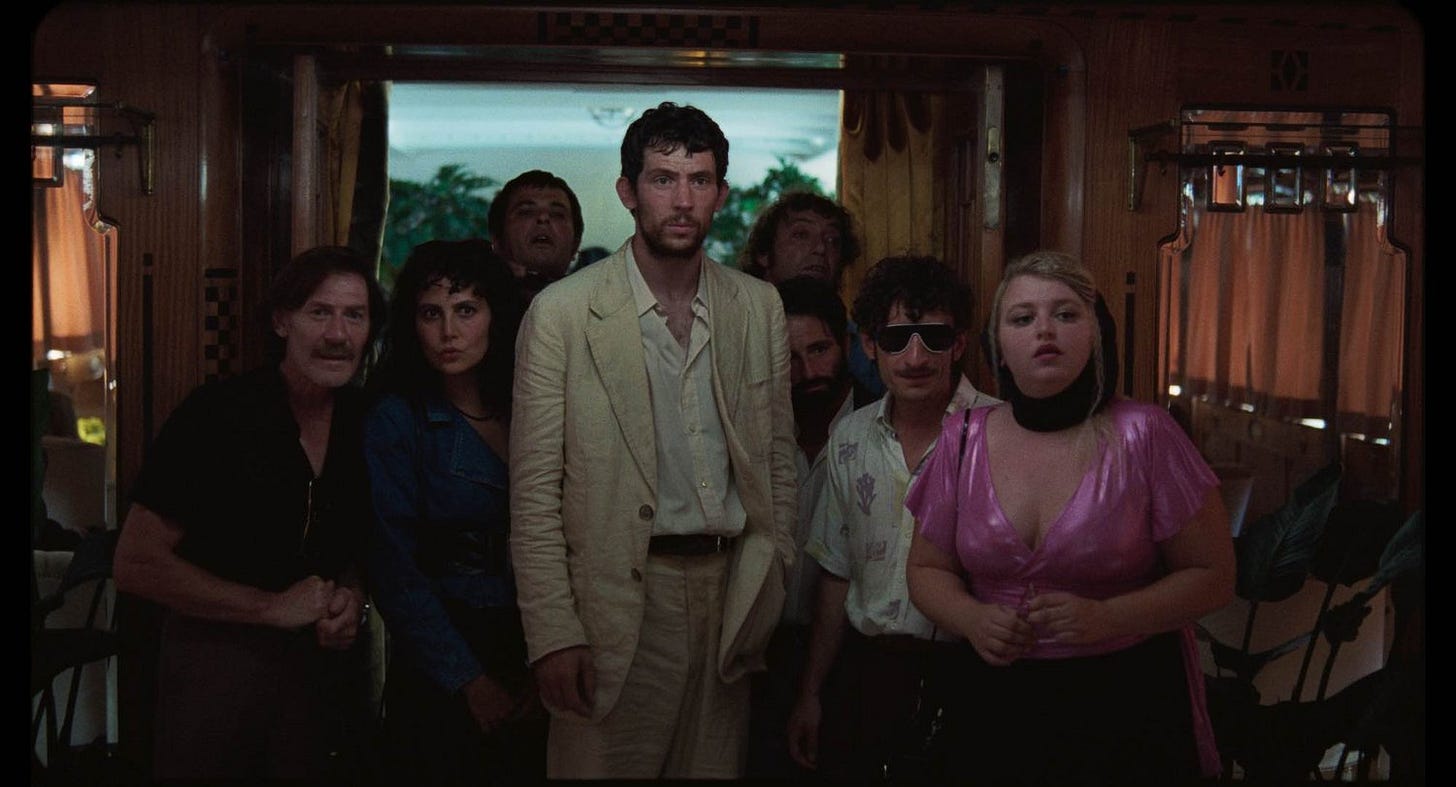La Chimera: Review
In the ethereal domain of cinematic storytelling, where narratives transcend the ordinary and explore profound revelations, Alice Rohrwache shines as a luminary of unparalleled artistry. Each unveiling of her cinematic creations unfolds like the unfurling of a masterful tapestry, seamlessly intertwining emotion, intrigue, and introspection. In her latest triumph, La Chimera, Rohrwache beckons audiences into a realm where genres harmonize, guided by Josh O'Connor's magnetic presence as Arthur, leading a band of trombalino through 1980s Italy. With the opening chords of this cinematic symphony, viewers are drawn into a spellbinding odyssey where the pursuit of truth and the allure of discovery converge in a spectacle of unparalleled beauty.
Portraying Arthur with brooding intensity, O'Connor navigates this desolate landscape with enigmatic allure, leading his band of trombalino—grave robbers delving into Etruscan tombs. Amidst the plundering of ancient burials, Arthur remains unmoved by history's weight, consumed instead by the act of discovery itself. It's a paradoxical dance between desecration and fascination, where the pursuit of truth and the allure of the unknown intertwine in a mesmerizing spectacle.
In Rohrwacher's deft hands, La Chimera transcends mere genre conventions, oscillating seamlessly between gritty realism and mystic allure. Through the nuanced performances of the ensemble cast, from the boisterous camaraderie of Arthur's trombalino cohorts to the haunting presence of Isabella Rossellini as Flora, the film navigates the intricacies of human connection amidst the backdrop of illicit pursuits and societal decay. Italia, portrayed with poignant vulnerability by Carol Duarte, embodies the struggle against societal stigma, her unwed motherhood echoing the unspoken truths lurking beneath the surface of Arthur's world.
Yet, amidst the pragmatic portrayal of grave robbing's grim realities, Rohrwacher infuses La Chimera with a mystical undercurrent, as Arthur's quest transcends mere material gain. Through dreamlike sequences and surreal imagery, the film hints at a deeper connection to the ancient past, where Arthur's relentless pursuit of relics becomes a quest for existential understanding. It's a journey fraught with longing and introspection, where the line between reality and myth blurs with each unearthed artifact.
As the story unfolds, Rohrwacher's meticulous storytelling unfolds a narrative of profound depth, exploring themes of love, loss, and the eternal quest for meaning amidst life's transience. O'Connor's portrayal of Arthur resonates with haunting authenticity, his sullen demeanor masking a soul tormented by ghosts of the past and visions of the future. It's a performance imbued with raw emotion, a testament to O'Connor's mastery of his craft and Rohrwacher's ability to evoke profound introspection from her actors.
La Chimera unfolds through the lens of the exceptionally gifted cinematographer Hélène Louvart, whose mastery captures the essence of timelessness on celluloid. Shot meticulously on film, the visual narrative transcends the confines of modernity, resonating with a nostalgic charm that harkens back to cinema's golden age. Louvart's artistry imbues each frame with a palpable sense of history and emotion, evoking a profound connection to the past. Amidst the enchanting Italian backdrop, reminiscent of Luca Guadagnino's evocative aesthetic in Call Me By Your Name, every scene unfolds like a painting, inviting viewers into a world where beauty and poignancy intertwine seamlessly.
But beyond its narrative intricacies and thematic depth, La Chimera resonates as a testament to Rohrwacher's singular vision as a filmmaker. From the evocative imagery to the haunting musical interludes, each element of the film serves to immerse the audience in a world both familiar and fantastical. It's a cinematic odyssey that defies easy categorization, inviting viewers to journey alongside Arthur as he navigates the labyrinthine depths of his own soul.
In the end, La Chimera stands as a triumph of cinematic storytelling, a poignant meditation on the human condition and the eternal quest for meaning in a world fraught with uncertainty. Through Rohrwacher's lens, the mundane becomes sublime, and the profane intertwines with the sacred in a mesmerizing tableau of light and shadow. It's a film that lingers in the mind long after the credits roll, a testament to the enduring power of cinema to illuminate the darkest corners of the human experience. It exemplifies nothing short of extraordinary filmmaking — a testament to the enduring power of cinema.
Grade: 5/5




